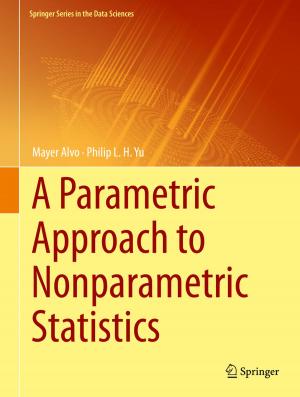The Presence of God and the Presence of Persons
Nonfiction, Religion & Spirituality, Philosophy, Religious| Author: | James Kellenberger | ISBN: | 9783030250454 |
| Publisher: | Springer International Publishing | Publication: | July 31, 2019 |
| Imprint: | Palgrave Pivot | Language: | English |
| Author: | James Kellenberger |
| ISBN: | 9783030250454 |
| Publisher: | Springer International Publishing |
| Publication: | July 31, 2019 |
| Imprint: | Palgrave Pivot |
| Language: | English |
This book treats the presence of God and the presence of persons. The experience of the presence of God is a well-recognized religious experience in theistic traditions. The experience of the presence of persons, this book argues, is an analogous moral experience. As it is possible for individuals to come into the presence of God – to have this phenomenal experience – so it is possible for them to come into the presence of persons.
Kellenberger explores how coming into the presence of persons is structurally analogous with coming into the presence of God. Providing a highly focused analysis of the two seemingly distinct concepts, normally thought to fall under different subfields of philosophy, the chapters carefully draw paralells between them. Kellenberger then goes on show how, analogous to “the death of God,” a loss of the consciousness of the reality of God and his presence, is a “death of persons”, felt as a loss of the sense of the inherent worth of persons and their presence. This volume finishes with an examination of the concrete moral and religio-ethical implications of coming into the presence of persons, and in particular the implications of coming into the presence of all persons.
This book treats the presence of God and the presence of persons. The experience of the presence of God is a well-recognized religious experience in theistic traditions. The experience of the presence of persons, this book argues, is an analogous moral experience. As it is possible for individuals to come into the presence of God – to have this phenomenal experience – so it is possible for them to come into the presence of persons.
Kellenberger explores how coming into the presence of persons is structurally analogous with coming into the presence of God. Providing a highly focused analysis of the two seemingly distinct concepts, normally thought to fall under different subfields of philosophy, the chapters carefully draw paralells between them. Kellenberger then goes on show how, analogous to “the death of God,” a loss of the consciousness of the reality of God and his presence, is a “death of persons”, felt as a loss of the sense of the inherent worth of persons and their presence. This volume finishes with an examination of the concrete moral and religio-ethical implications of coming into the presence of persons, and in particular the implications of coming into the presence of all persons.















